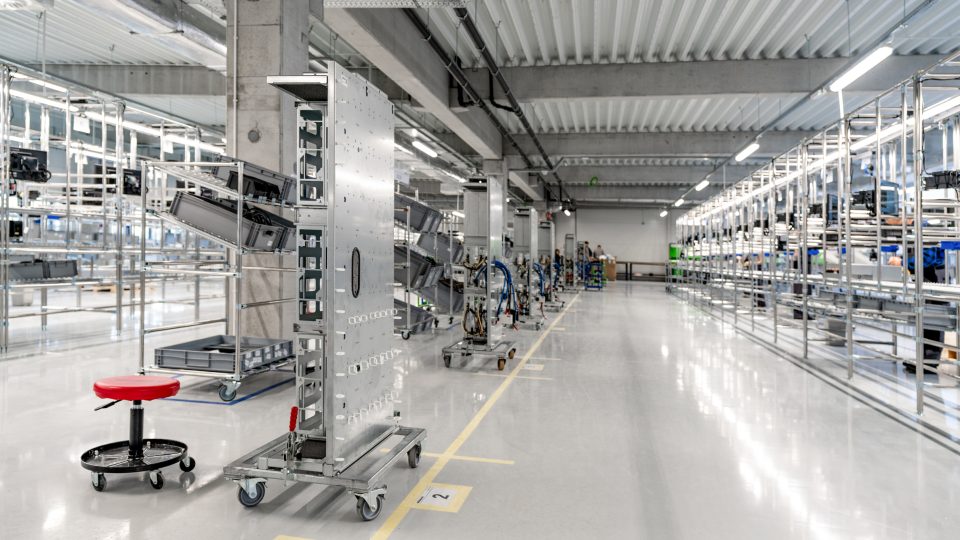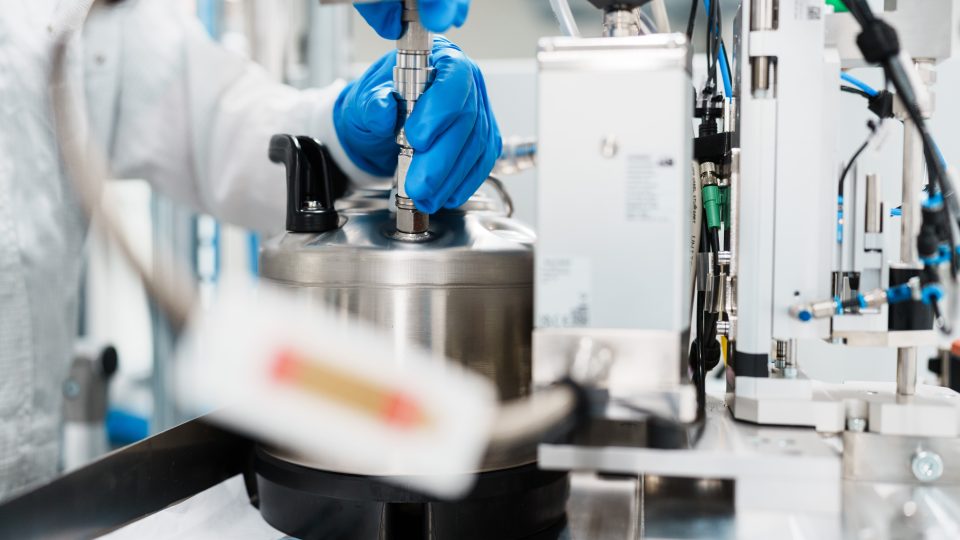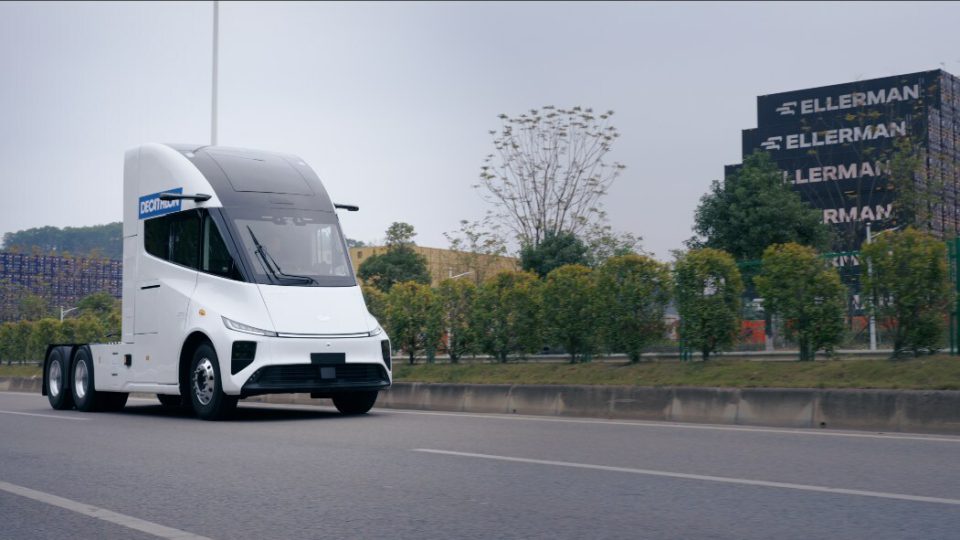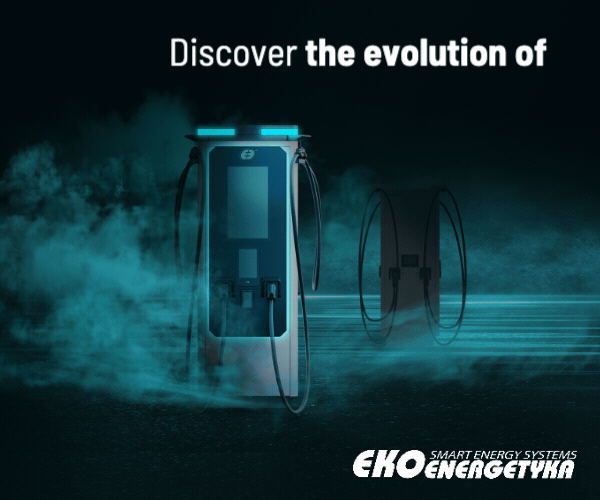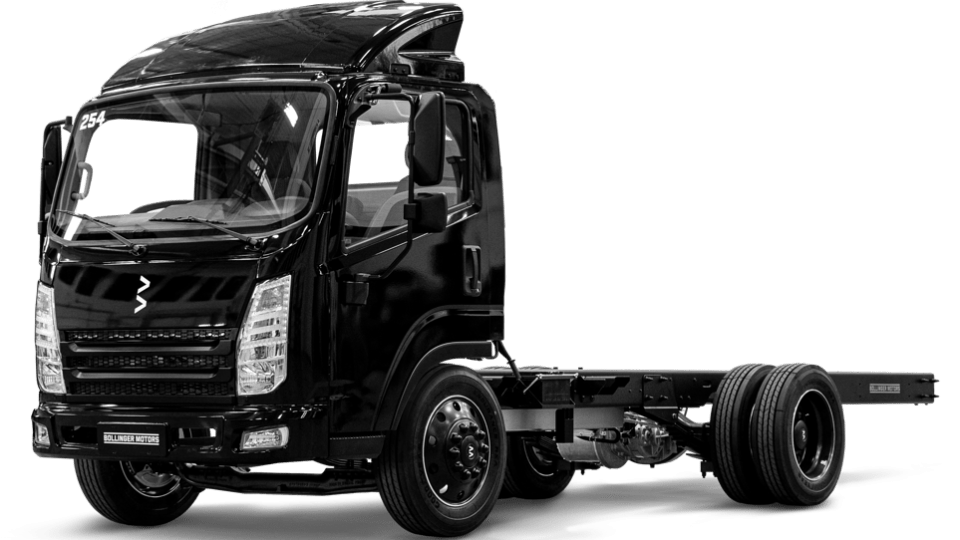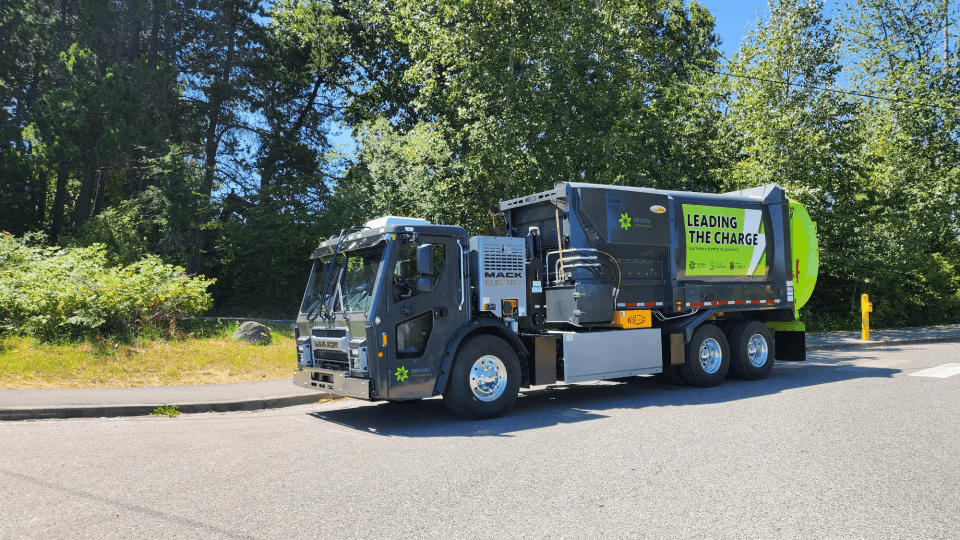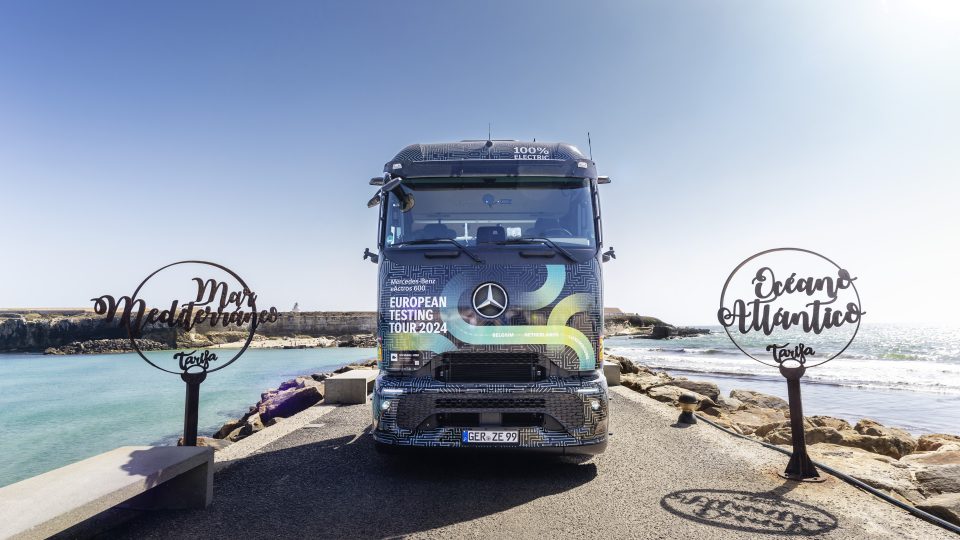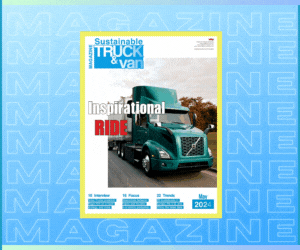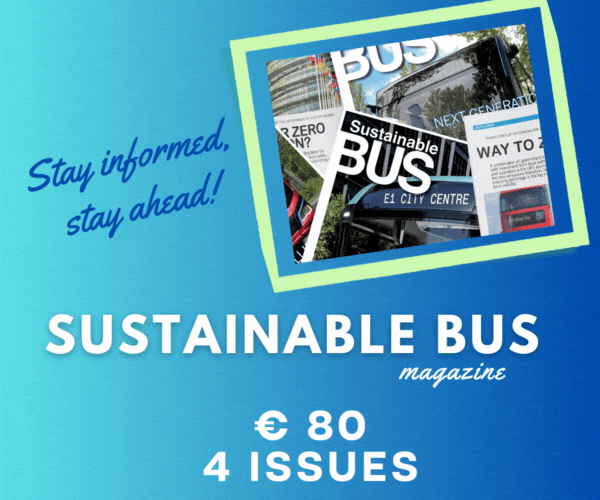Renault Trucks to expand the electric truck range up to 44 tonnes. The comprehensive E-Tech offer unveiled
The new electric offering, which is named E-Tech and focuses on 360° support for customers, is set to replace the current offer of Z.E. electric trucks. From 2023, two new models of up to 44 tonnes, namely the Renault Trucks T E-Tech and the Renault Trucks C E-Tech for the construction industry will be sold.
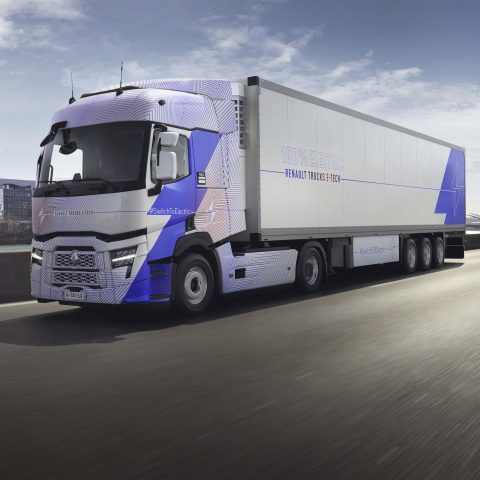
Renault Trucks will soon enhance its electric truck offer. Moreover, the company unveiled the so-called E-Tech offer, including a series of key services that may help customers in their transition to electric vehicles. The French manufacturer announced the start of sales for 2023 of two new models of up to 44 tonnes, namely the Renault Trucks T E-Tech (pictured above) for regional transport and the Renault Trucks C E-Tech (pictured below) for the construction industry. Yesterday, Renault Trucks announced the start fo another new project together with Geodis, namely the Oxygen 16-ton e-truck.
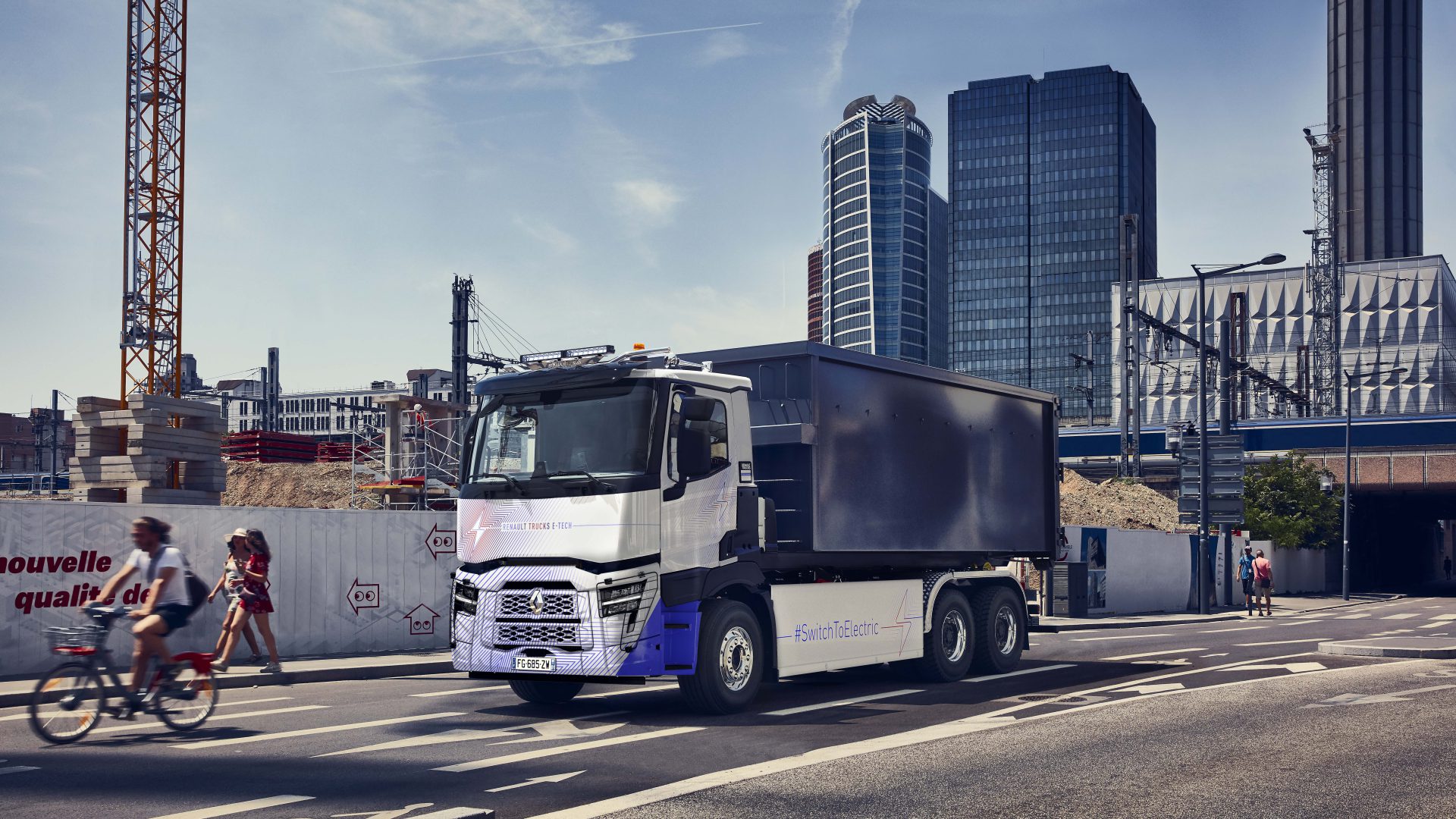
Renault Trucks E-Tech: some technical details
The new models in Renault Trucks’ heavy-duty range will be fitted with two or three electric motors providing a combined power of up to 490 kW (666 hp). They will be also equipped with an Optidriver gearbox and will have two to six lithium-ion battery packs with a capacity of 180 to 540 kWh. The vehicles’ batteries can be fully charged in 9.5 hours by alternating current (AC) up to 43 kW, or in 2.5 hours by direct current (DC) up to 250 kW.
These trucks will be able to travel up to 300 km on a single charge and up to 500 km with a one-hour intermediate fast charge (250 kW). The new electric truck models, with a gross vehicle weight of 44 tonnes, will be available in 4×2 and 6×2 tractor versions. The Renault Trucks T and C E-Tech will go on sale in the first quarter of 2023. They will be manufactured at in Bourg-en-Bresse, France.
Replacing the current offer of Z.E. electric trucks
Such an important announcement is part of a broader energy transition strategy conceived by the French manufacturer, whose plans are to sell 50 per cent electric vehicles by 2030 and to be 100 per cent carbon neutral by 2040. The new electric offering, which is named E-Tech and focuses on 360° support for customers, is set to replace the current offer of Z.E. electric trucks.
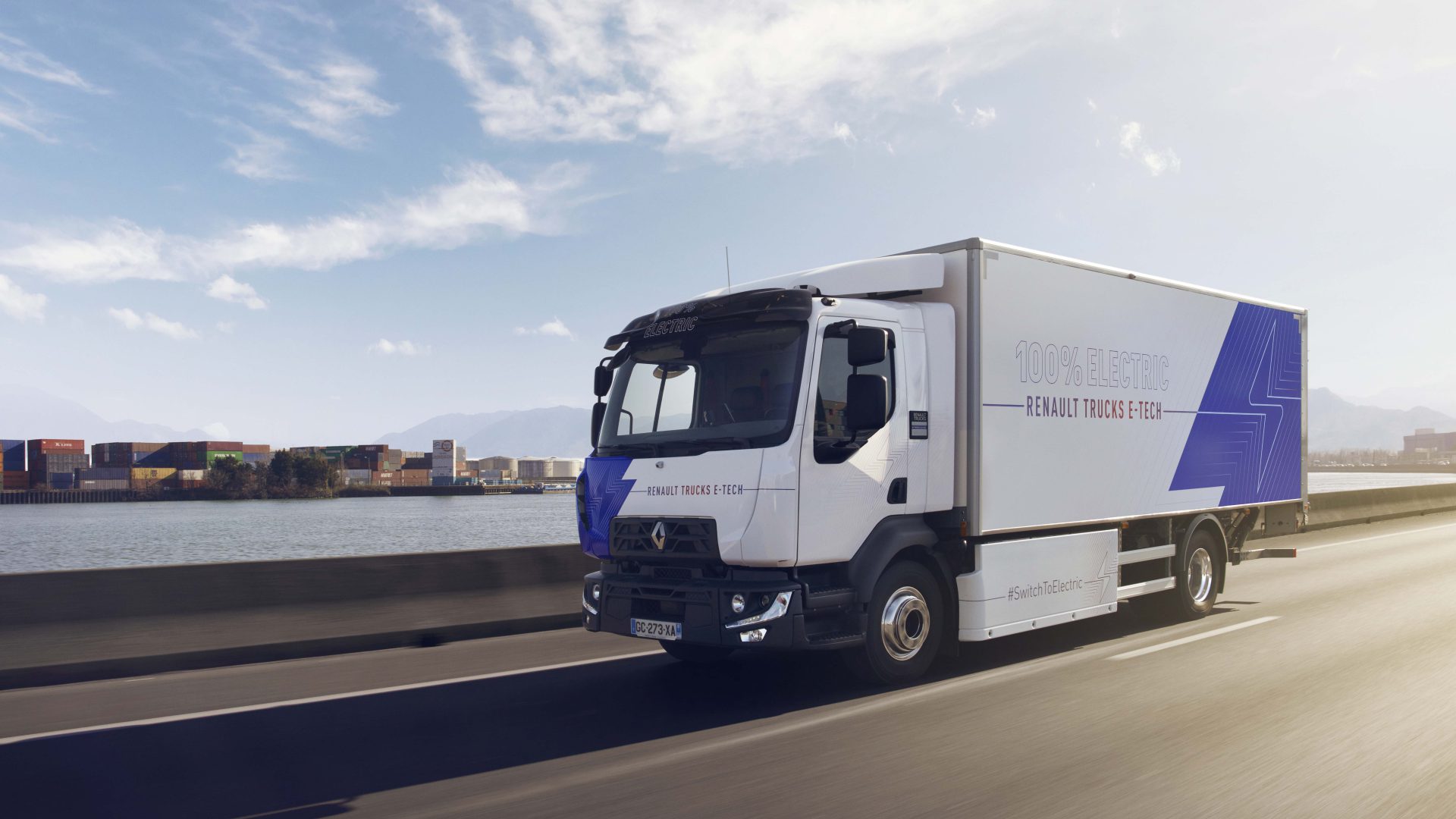
Full customer support in four phases
The 360° support is structured in four phases. Starting from Renault Trucks helping customers draw up their decarbonisation plans and analyse and define their needs. A second phase of diagnosis is based on precise knowledge of the customer’s activity, including analysis of the fleet and routes and an analysis of the sites’ electrical facilities. It involves use of simulation tools to help customers make decisions and monitor their activity, such as a carbon emission reduction simulator and a range simulator.
Next, a phase during which Renault Trucks becomes the architect of the decarbonisation project and co-builds the new electric mobility ecosystem alongside the customer. The solution includes financing, taking into account local or governmental subsidies, the definition and setup of the complete truck with its equipment and bodywork, on-site charging facilities, maintenance agreements, etc. At this stage, the electric truck can be tested in real working conditions. Finally, Renault Trucks acts as the project manager for the customer’s decarbonisation solution: installation of on-site charging facilities, training of drivers and fleet administrators, etc. Last but not least, Renault Trucks and its network support customers in the operational monitoring of their fleet, thanks to vehicle connectivity.




